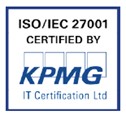FoodTech – E-commerce for Food Products and Services
5 November 2020
Authors: Elisabeth Vestin (Partner), Sarita Schröder (Managing Associate), and Itai Coleman (Associate)
The shift from traditional in-store commerce to e-commerce has transformed the global market. Driven by advancements in tech and innovation, new services and products are constantly emerging and the competition is tough. One industry which has successfully established itself as one of the most trending areas of e-commerce is the food industry. Ever since food-related businesses made their grand entrance on the e-commerce scene, various services have appeared. Round-the-clock online restaurant delivery services and click-and-collect or home-delivered grocery shopping are some of the services which are disrupting the patterns of how consumers purchase food.
Due to the ongoing spread of COVID-19, e-commerce has been on the rise as many consumers have been forced to do their shopping online. To say that the food e-commerce industry has expanded explosively during this period would be an understatement – for instance, according to data collected by the Swedish Food Retailers’ Federation, the e-commerce of groceries in Sweden increased by over 100 per cent in April 2020. In Finland, even larger growth figures have been reported.
Investing in the launch of an e-commerce platform for food products or services brings many new opportunities as well as challenges. From a legal perspective, the intersection of food and tech gives rise to several important questions.
General Legal and Commercial Aspects on Food E-Commerce
Currently, there is no specific legislation regarding food e-commerce in Sweden, in Finland, or in the EU as a whole. Instead, there are two main branches of legislation applicable to food e-commerce: food legislation and general commercial legislation, the latter including consumer protection legislation.
The topic of food legislation on a national as well as EU level has been dealt with in our previous articles on trends and regulatory issues and novel foods. Generally, the national food legislation applicable in the context of traditional in-store commerce is equally applicable to e-commerce. The same applies on the EU level, i.e. EU food law applies to food control in general.
By definition, e-commerce means any kind of sales conducted by way of technology for distance communications, for example sales via websites, social media, e-marketplaces, and apps. Food e-commerce is often associated with certain well-known brands and services which have gained great traction in the past years. However, the notion of food e-commerce includes many types of services and set-ups. Below are a few examples of what is considered e-commerce business within the food industry in Sweden according to the Swedish Food Agency:
- ordering of food online, whether from a restaurant or an individual
- grocery shops offering online purchasing
- web-based companies importing food from other countries or exporting food from Sweden
- meal delivery services offering web-based purchases of pre-packed grocery bags with accompanying recipes
- businesses other than grocery shops which own food storages and offer on-demand food services
The same would likely be considered e-commerce business within the food industry in Finland as well.
Food e-commerce is characterised by the fact that the goods are perishable and sometimes hazardous to the health of consumers if not handled properly. For example, with the home-delivery of groceries, the flow of products from start to end must be quick and the internal processes and procedures of the e-commerce operations must be adapted accordingly. Thus, it is important to find a suitable shipping agent and negotiate terms that fit the needs of the e-commerce operations.
Consumer Protection Legislation
In Sweden, consumer protection in cases of food e-commerce relies on several laws, in particular, the Sales of Goods Act (in Swedish: Köplagen), the Consumer Sales Act (in Swedish: Konsumentköplagen), the Swedish E-Commerce Act (in Swedish: Lag om elektronisk handel och andra informationssamhällets tjänster), and the Swedish Distance and Doorstep Sales Act (in Swedish: Lag om distansavtal och avtal utanför affärslokaler). In Finland, the regulatory framework is more streamlined, as the Consumer Protection Act (in Finnish: kuluttajansuojalaki) is the primary source of law.
From a consumer protection standpoint, it is important to note that, in general, consumers shopping online or outside the seller’s premises have the right to a fourteen-day withdrawal period under the Swedish Distance and Doorstep Sales Act and the Finnish Consumer Protection Act. However, the right of withdrawal does not apply to certain types of sales of food or other groceries that are delivered to a consumer’s home or workplace. In addition, even if the right of withdrawal applied, it would be excluded when the sale concerns, for example, goods that are liable to deteriorate or expire rapidly or sealed goods that are not suitable for return due to health protection or hygiene reasons or that were unsealed after delivery.
Product quality and delivery time are also key considerations in the context of food. Under the mandatory Swedish Consumer Sales Act and the Finnish Consumer Protection Act, the consumer may have a right to compensation if the delivery is delayed for reasons not attributable to the consumer. The nature of the product must also be in accordance with what is specified in the agreement in terms of, among other things, type, amount, and quality. These provisions may be especially challenging in certain contexts, for instance in the home-delivery of groceries, as some businesses do not merely offer to deliver the groceries to the customer’s home, but even to place them in the customer’s fridge. In such cases, the parties must agree on what the specific terms of delivery are – for instance, what happens if the fridge is already full or if the customer is not at home.
If a delivered product deviates from what is specified in the agreement, the consumer may, among other things, have a right to demand that the product be replaced with an equivalent, to demand a reduction in price or compensation in order to rectify the effect or, if the defect is of material significance for the consumer, to terminate the contract. To summarise, in the context of food e-commerce, it is important to always be aware of the applicable consumer rights and to implement clear and thorough terms for purchase and delivery.
Key Take-Aways
- Ensuring an effective and well-functioning chain of supply is essential in food e-commerce. Food is a perishable good, and issues with the internal logistics may affect the quality of the food delivered and lead to reputational and legal consequences.
- In the context of food e-commerce, it is usually possible to exclude the general 14-day right of withdrawal — and in some cases, the aforementioned right may not apply at all.
- Nonetheless, consumers may have the right to demand remedies if the delivery of the product is delayed or if it differs from what is specified in the agreement.






